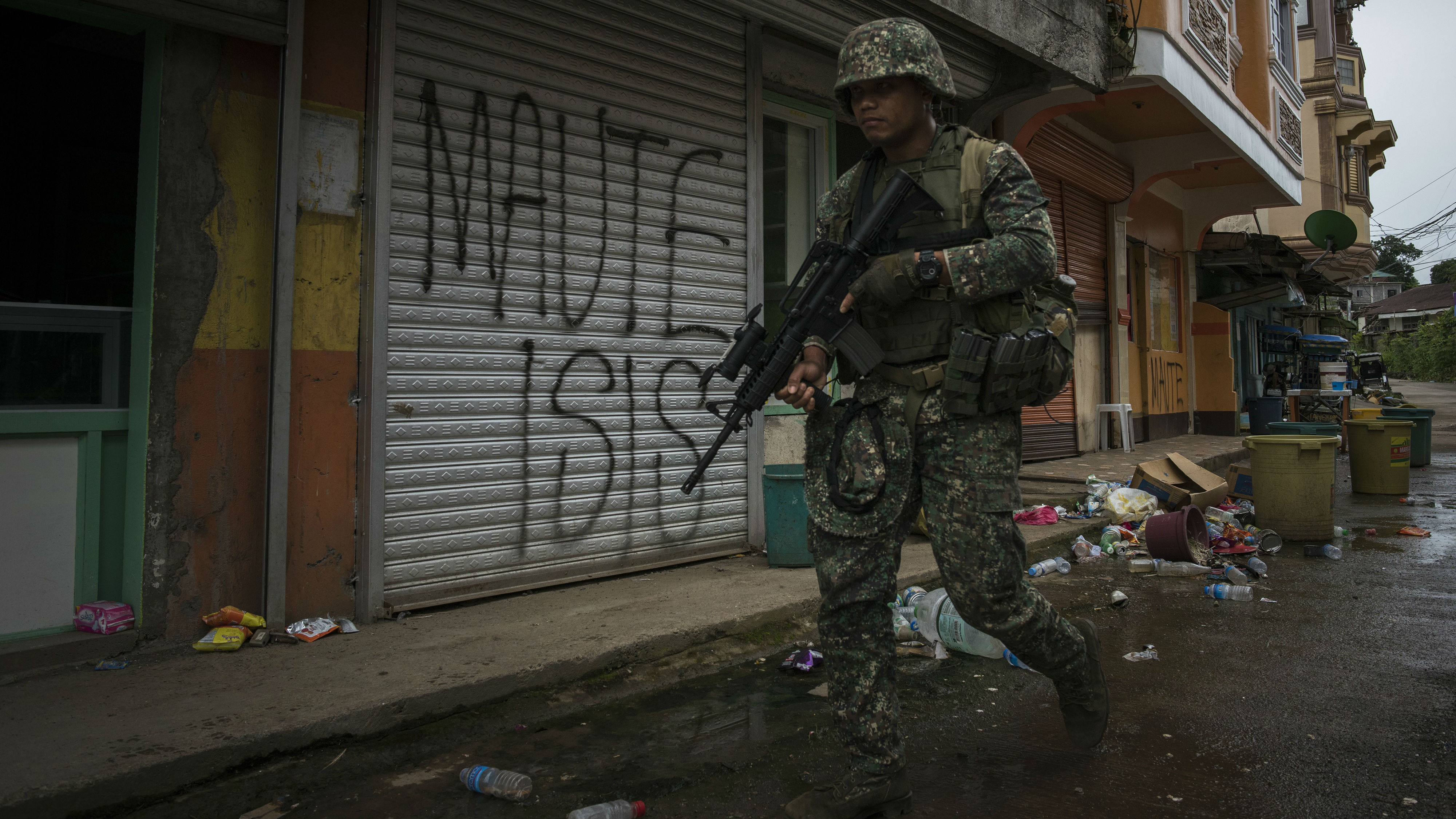Why 25 million Filipinos are living under martial law
Philippine government votes to extend military rule in Mindanao

A free daily email with the biggest news stories of the day – and the best features from TheWeek.com
You are now subscribed
Your newsletter sign-up was successful
Filipino lawmakers have voted to keep the country’s second-largest island – and its 25 million residents – under martial law for another year as the government seeks to break a tenacious Islamist insurgency.
The latest extension will keep Mindanao under military rule until the end of next year, “prolonging what was already the country’s longest period of martial law since the brutal 1970s era of late dictator Ferdinand Marcos”, says Channel News Asia.
Citing a series of deadly bombings in the restive region, President Rodrigo Duterte argued that the Islamist terror groups responsible for the attacks could regroup if the tough security measures, including the suspension of habeas corpus, were lifted too soon.
The Week
Escape your echo chamber. Get the facts behind the news, plus analysis from multiple perspectives.

Sign up for The Week's Free Newsletters
From our morning news briefing to a weekly Good News Newsletter, get the best of The Week delivered directly to your inbox.
From our morning news briefing to a weekly Good News Newsletter, get the best of The Week delivered directly to your inbox.
Executive Secretary Salvador Medialdea said that the extension was needed to support government forces, who he claimed were “at the cusp of ending rebellion in Mindanao”.
The area, where Muslims make up 25% of the population in a country which is otherwise overwhelmingly Catholic, has been a hotbed of unrest for decades, acting as a spawning ground for Communist, separatist and Islamist militias.
The main island and its surrounding smaller islands have been under military rule since May 2017 when hundreds of militants belonging to the Isis-affiliated Maute group took over parts of Marawi City.
The insurgency drew the army and special forces into a long and deadly campaign of house-to-house urban warfare.
A free daily email with the biggest news stories of the day – and the best features from TheWeek.com
“By the time the military declared victory on Oct 23, more than 1,000 militants, government troops and civilians were dead, half of Marawi was pulverised into rubble and dust, and about 400,000 people living in and near Marawi were forced to flee their homes,” says The Straits Times.
The city’s mayor welcomed the extension of martial law in Mindanao. “I would say six months to one year is enough for us to really contend resurgence of another Maute group," Majul Usman Gandamra told national broadcaster ABS-CBN.
But although the country’s congress approved the proposal by a huge majority of 235 to 28, both lawmakers and activists have expressed unease with the situation, citing its corrosive effect on human rights and democracy in the region.
“According to the tally of local rights group Karapatan, 88 individuals [have been] killed by state forces and paramilitary groups since the declaration of martial law in Mindanao,” The Philippine Star reports.
At least 1,450 individuals have been illegally detained during this time period.
“It makes me wonder, is this the new normal?" Filipino senator Franklin Drilon warned ahead of the vote.
“Martial law is like antibiotic: It is only resorted to when normal over-the-counter drugs no longer work,” he said. “We must not resort to it when other less extreme measures are available.”
-
 Secured vs. unsecured loans: how do they differ and which is better?
Secured vs. unsecured loans: how do they differ and which is better?the explainer They are distinguished by the level of risk and the inclusion of collateral
-
 ‘States that set ambitious climate targets are already feeling the tension’
‘States that set ambitious climate targets are already feeling the tension’Instant Opinion Opinion, comment and editorials of the day
-
 Mixing up mixology: The year ahead in cocktail and bar trends
Mixing up mixology: The year ahead in cocktail and bar trendsthe week recommends It’s hojicha vs. matcha, plus a whole lot more
-
 Epstein files topple law CEO, roil UK government
Epstein files topple law CEO, roil UK governmentSpeed Read Peter Mandelson, Britain’s former ambassador to the US, is caught up in the scandal
-
 Iran and US prepare to meet after skirmishes
Iran and US prepare to meet after skirmishesSpeed Read The incident comes amid heightened tensions in the Middle East
-
 Israel retrieves final hostage’s body from Gaza
Israel retrieves final hostage’s body from GazaSpeed Read The 24-year-old police officer was killed during the initial Hamas attack
-
 China’s Xi targets top general in growing purge
China’s Xi targets top general in growing purgeSpeed Read Zhang Youxia is being investigated over ‘grave violations’ of the law
-
 Panama and Canada are negotiating over a crucial copper mine
Panama and Canada are negotiating over a crucial copper mineIn the Spotlight Panama is set to make a final decision on the mine this summer
-
 Why Greenland’s natural resources are nearly impossible to mine
Why Greenland’s natural resources are nearly impossible to mineThe Explainer The country’s natural landscape makes the task extremely difficult
-
 Iran cuts internet as protests escalate
Iran cuts internet as protests escalateSpeed Reada Government buildings across the country have been set on fire
-
 US nabs ‘shadow’ tanker claimed by Russia
US nabs ‘shadow’ tanker claimed by RussiaSpeed Read The ship was one of two vessels seized by the US military